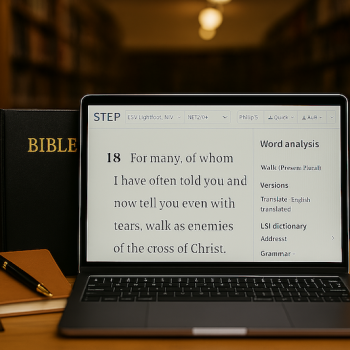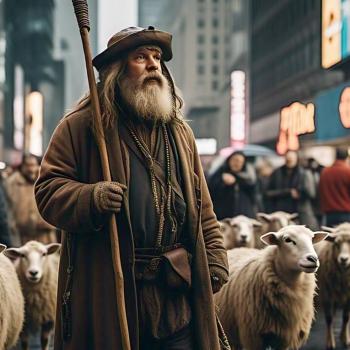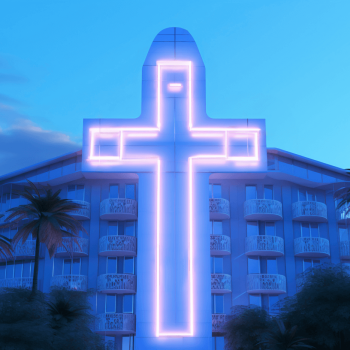In case you missed it, post-apocalyptic storylines in Hollywood are among today’s fastest-growing trends. From zombies to pandemics, if any director wants to create a little ‘oomph’ to a movie, make ivy grow from the tops of skyscrapers.
There is no electricity, gas, or heat. Of course, the enemy is a beast, virus, extraterrestrial thing, or random flesh-eating monster. Whatever the case, the world ending equals lovely dividends at the box office. Most recently, the latest edition to the “Mad Max” saga, Furiosa, is out. The opening weekend for the premiere was sorely lackluster, which underscores how the post-apocalyptic genre is an acquired taste for many moviegoers and streamers.
(And yes, I saw it already because “research.”) Yet, that “taste” has created mammoth successful projects such as I Am Legend, The Walking Dead, and the MAX original video adaptation, The Last of Us.
Even Angel Studios is planning a post-apocalyptic project based on the “Black Autumn” book series called Homestead. The way that studio is parading on the Hollywood Strip, there’s little doubt from Christ-followers that their take will be nothing short of compelling storytelling. That’s what brings us to this month’s Biblist (that is, “Bible List”).
But first…
Want to stay in touch with the faith-based issues that affect us close to home? Subscribe to our free newsletter and never miss what’s said about the Church and how Christians should talk back.
On with the show.

10. Left Behind (1995-2014)
The colossally evangelistic and successful book series from Tim LaHaye and Jerry B. Jenkins was a movement in the Church and has become a multimedia empire. The premillennial take created 40 young-adult novellas, 16 books, five films, a soundtrack album, a video game, a seven-book spinoff series and a spinoff film, Vanished–Left Behind: Next Generation. Regardless of what you think of the quality of the films, there’s no denying the impact this franchise has created for Christ.
9. Planet of the Apes (1968-2024)
Unfortunately, some Orthodox views and Biblical purists see this franchise as a celebration of Darwinism and evolution. That summation is closed-minded because the idea from 1968 starring Moses himself (Sir Charlton Heston) flips the script. What if the dominion of this planet was owned by the animals and not man?
And since the fantastic reboot, most recently with the 2024 addition of the tetralogy “Kingdom of the Planet of the Apes,” we are voyeurs of the apes’ journey to learn about what they think is evil when the enemy is within.
8. The Road (2009)
The revered Corman McCarthy, who wrote the book and screenplay of No Country for Old Men, developed a gritty and raw depiction of the apocalypse. This is not a “kids and popcorn” flick whatsoever, and the book was even more graphic in thematic nature. However, the message is blatant and direct.
We meet a man and his son toward the end of their grueling journey, and the relationship sustained is inspirational. That connection, amid the other fiery characters, is ripe with Biblical imagery and references. Many Christian notes are thoughtful and contemplative, but only if you can stomach a difficult watch because of its coarse nature.
7. 1984 (1984)
A euphemism for post-apocalyptic life is “Orwellian,” named after acclaimed sociopolitical author George Orwell. In 1984, we meet Big Brother, an enigmatic totalitarian who sees everything through forced surveillance everywhere. Written in 1949, Orwell was dubbed a prophet who considered the connections between Big Brother and Adolf Hitler and his propagandistic “Newspeak” agenda against the Jews.
This is also a film not for the kids or the faint of heart, but it clearly portrays what happens in an atheistic society that abhors the presence of God and the love of Christ. Not for nothing, but so did Orwell, who is noted as saying, “A totalitarian state is, in effect, a theocracy.” And if you need a glimpse of what a modern-day Apostle Paul would endure, note the vile, torturous interrogation Winston (John Hurt) receives from O’Brien (Richard Burton) for religious belief.
6. Snowpiercer (2013, 2020-2023)
Bong Joon-ho, the Academy Award-winning director of Parasite, created a remarkable dystopian film in 2013 that was later made into a TV series. The concept of a train circumnavigating the globe following a climate apocalypse has several Biblical undertones and a few upfront themes, such as social injustice and caste systems.
Even in the first few minutes, the train is referred to as a “rattling ark” because a full snapshot of society is onboard–the wealthy in first class and the impoverished in the back. Both groups were considered–and treated–more like different species than anything. This action-packed film has a worship of false gods (a “sacred engine”), a crazed cult-like preacher, and what true post-apocalyptic life would be in the absence of God’s grace and mercy.
5. Wall-E (2008)
This Disney film is a classic take on an age-old concept: In the event of the Apocalypse, the world ends, not humanity. Wall-E is a robot on a journey to find companionship in some areas and common love in others. If you don’t remember, a ship—the Axiom—brings what’s left of the human race to safety. Noah’s Ark, anyone?
Also, we meet Wall-E and EVE (so there’s Adam and Eve, perhaps). People said they would throw away their “old ways” and offer their “works” to help restore their futures. It’s Genesis meets the Book of Ephesians. Yes, Disney did all that!
4. The Leftovers (2014-2017)
Prolific storyteller Damon Lindelof (Watchmen TV series, Lost, Lanterns) tackles one of the most novel takes on life after Armageddon. While the HBO series only lasted three seasons, they’re well worth a binge if you want to see this vantage point of how people would re-learn to study, worship, and discuss faith.
Additionally, witnessing plays a role as people who weren’t raptured or lived through the Apocalypse (i.e., they are “The Leftovers”) understand sharing what they believe and going to church or joining a cult. It’s a fast watch, but a good one.
3. The Matrix (1999-2011)
You didn’t see the right film if you don’t think The Matrix tetralogy is ripe with biblical references. The premise is about a prophecy detailing “The One” who will save humanity and defeat a common enemy (in this case, artificial intelligence). The references, connections, and allegories to the Bible are many. Here are only a few:
- Our hero (Keanu Reeves) is a hacker with the avatar “Neo,” or an anagram of “One”
- His cohort and significant other is “Trinity” (Carrie-Anne Moss)
- Neo’s only customer in the franchise greets our hero with, “You’re my savior, man. My own personal Jesus Christ.”
- When a brutalized Neo finally dies, his arms are outstretched (as on a Cross) and did so willingly for humanity
- The Oracle (Gloria Foster) is based on the Greco-Roman myth, the Oracle of Delphi, who acts as the Holy Spirit proclaiming the “path” for Neo to walk
- Ultimately, Neo and his gang are betrayed by Cypher (Joe Pantoliano), who is a Judas-type character
- Agent Smith (Hugo Weaving) is a Satanic figure who hates humanity, whose contempt casts him out of “Zion,” the home of the real world.
- Neo is onboard a ship named “Nebuchadnezzar,” the king responsible for the Babylonian captivity of the Jews. That’s also the chief crusading vehicle for those hiding in the promised land of Zion.
C’mon! Save the graphic scenes and language; this is a Sunday school lesson.
2. Interstellar (2014)
While not necessarily post-apocalyptic, this is the story of the penultimate generation searching for a new planet to inhabit following its ruin of Earth. Christopher Nolan makes one of the most fascinating movies in recent memory. Throughout the movie there are many Biblical narratives and implications laced throughout this film, some subtle and others direct.
Cooper (Matthew McConaughey) is a NASA physicist who is a personification or allegory of the Holy Trinity. His trek through the universe forces us to consider our time versus God’s, as he loses track of both. Humanity must make sacrifices for the greater good and dogmatic belief, which is under a magnifying glass throughout the film. If you haven’t seen this movie, do so. It has few equals and will have you reaching for your Bible many times.
1. The Book of Eli (2010)
Denzel Washington leads a stellar film that shows the world in a moral downward spiral following the Earth’s collapse, which requires biological renewal. People lack faith, hope or love, making “Eli’s” journey necessary. Eli carries a book with him everywhere—one he defends with his life. And everyone wants to get a glimpse of it to see if this book possesses life-altering power.
It’s the Bible, printed in Braille, and Eli is its sole interpreter. The film’s premise is that God’s Word will endure, and nothing can defeat its power if one person stays “on the path less traveled.” One quote in the film is the reason for Eli’s quest: “It’s not right to keep that book hidden away. It’s meant to be shared with others.”
There are several parallels between zealous crusaders searching for the Book of Eli and the anti-Christian campaigns of today to snuff it out. The “Book” of Eli is a weapon. It is sharper than any two-edged sword (Hebrews 4:12). The Book of Eli is a necessary watch for Christians anywhere.

















